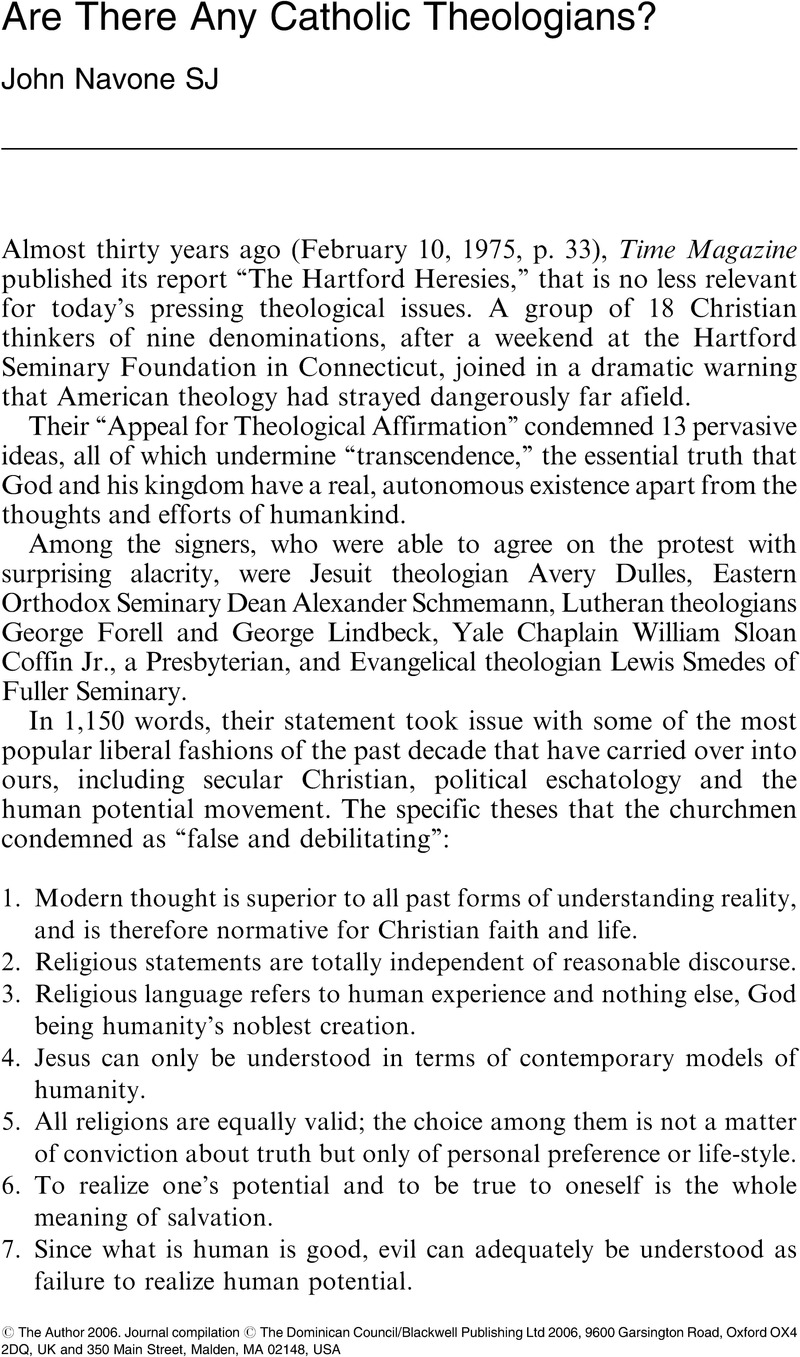No CrossRef data available.
Article contents
Are There Any Catholic Theologians?
Published online by Cambridge University Press: 01 January 2024
Abstract

- Type
- Original Articles
- Information
- Copyright
- © The Author 2006. Journal compilation © The Dominican Council/Blackwell Publishing Ltd 2006, 9600 Garsington Road, Oxford OX4 2DQ, UK and 350 Main Street, Malden, MA 02148, USA


